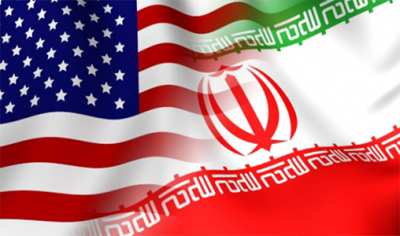Iran Trumps Trump

Iran has trumped Trump by routing its oil tanker along the northern shore of the Mediterranean, pausing at ports in Greece and Turkey, then anchoring off Syria’s Tartus. The current occupant of the White House, Donald Trump, persuaded London to detain the tanker, originally named Grace 1, as it sailed through the Strait of Gibraltar, a British overseas territory. On July 4, armed royal marines were dispatched to apprehend the ship, upsetting the crew with this unnecessary show of force. Britain argued it had seized the ship because it intended to violate EU sanctions, barring Iranian oil deliveries to sanctions-ridden Syria. Commentators argued that Iran is not a member of the EU and cannot be expected to abide by bloc sanctions against itself.
Although Trump urged Britain to hold the vessel indefinitely, it was released by Gibraltar’s high court on August 15. Britain said Iran had agreed to the condition that it would not dock at any country under EU sanctions. The ship was renamed Adrian Darya 1 and began its slow journey eastwards, monitored by US and British ships and satellites. The Trump administration issued a warrant for the tanker’s arrest and threatened to impose sanctions on any country offering assistance or any potential buyer of the cargo. Last week, a desperate US official offered the Indian captain of the ship millions of dollars to sail to a port where the US could detain it. The captain switched off the transponders that identify the ship’s location and satellite photos subsequently showed it be off the coast of Syria.
Once safely in Tartus, where the Russians have a naval facility, Iran trumped Trump a second time by announcing its cargo of 2.1 million barrels of crude had been sold and delivered to an unidentified customer, presumably in heavily sanctioned Syria. Iran can be charged with “showboating” at Trump’s expense.
Israel retaliated on behalf of Trump by bombing and killing 18 pro-Iranian Iraqi militiamen fighting Daesh in southeastern Syria. This was a strike that was in no one’s interest.
The Trump administration’s response was given by Treasury official Sigal Mandelker, who said: “We will continue to put pressure on Iran and as [Trump] has said, there will be no waivers of any kind for Iran’s oil.” She also accused Iran of engaging in a “game of deception”. Her reaction was hardly surprising. She has pledged to defend “our great partner Israel” by imposing sanctions on Iran, journalist Max Blumenthan revealed in an article published online. She is the architect of the extreme sanctions regime.
There would have been no need for sanctions or Iranian deception if Trump had honoured the 2015 agreement, under which Iran dismantled 90 per cent of its nuclear programme in exchange for sanctions relief. He withdrew for several reasons. He is determined to destroy all the achievements of President Barack Obama, the Iran deal being his major foreign success. During his election campaign, Trump promised his conservative “base” of supporters that he would “tear up the deal” although most members of this constituency probably have no idea where Iran is and are not interested in the nuclear deal. He also sought to please his great friend Israeli Prime Minister Benjamin Netanyahu by not only wrecking the deal by pulling out, but also by imposing ever tougher sanctions which Mandelker has used to punish anyone who has anything to do with Iran, even US academics who attend conferences in Iran.
Although France, Germany and Britain have tried to establish a mechanism which would allow Iran to sell enough oil to purchase medicine and humanitarian supplies, this has not yet come into force due to US pressure and interference. Iranian officials argue the country needs to export between 750,000 and 1.5 million barrels of crude a day in order to save the agreement from collapse. Tehran has given Europe two months to find a way to circumvent Trump’s sanctions. Europe, which continues to support the agreement, is trapped by Trump and his exactions. Last week, France proposed a financial bailout, allowing Iran to receive $15 billion in hard currency, about half its normal revenue from a year’s oil exports. Trump has to give assent before it can be implemented.
Having scrupulously complied with the agreement until May this year, Iran has since then taken small steps to pull back from the agreement. It has increased output of enriched uranium beyond limits set by the deal, slightly raised the approved level of enrichment and is upgrading its centrifuges. Iran argues its actions are within the scope of the agreement, while the US is in violation by withdrawing from it and ramping up sanctions.
Trump has blacklisted Iran’s Supreme Leader Ayatollah Ali Khamenei and Foreign Minister Mohammad Javad Zarif and branded the country’s army, the Revolutionary Guard Corps, a “terrorist” organisation. Through the wide use of sanctions, the Trump administration has reduced by 80 per cent Iran’s oil exports, its main source of external revenue.
After the six-nation nuclear agreement was implemented in January 2016, Iran was able to export oil, metal, gold and other items and its economy surged. Since Trump reinstated sanctions, Iran’s economy has returned to negative growth. International human rights laws should prohibit the use of sanctions that negatively impact populations of targeted countries since such sanctions constitute collective punishment, which is deemed illegal in international law.
Iran cannot be expected to submit to such punishment and will retaliate somehow whenever it can. Afraid to cross Trump and his minions, Europe promises Iran relief but fails to deliver. It is hardly surprising that Iran responded to the British detention of Grace 1, by taking charge of a British-flagged tanker, the Stena Impero, in the Strait of Hormuz. Now that its tanker is moored in Tartus, the Stena Impero is expected to be released.
*
Note to readers: please click the share buttons above or below. Forward this article to your email lists. Crosspost on your blog site, internet forums. etc.

